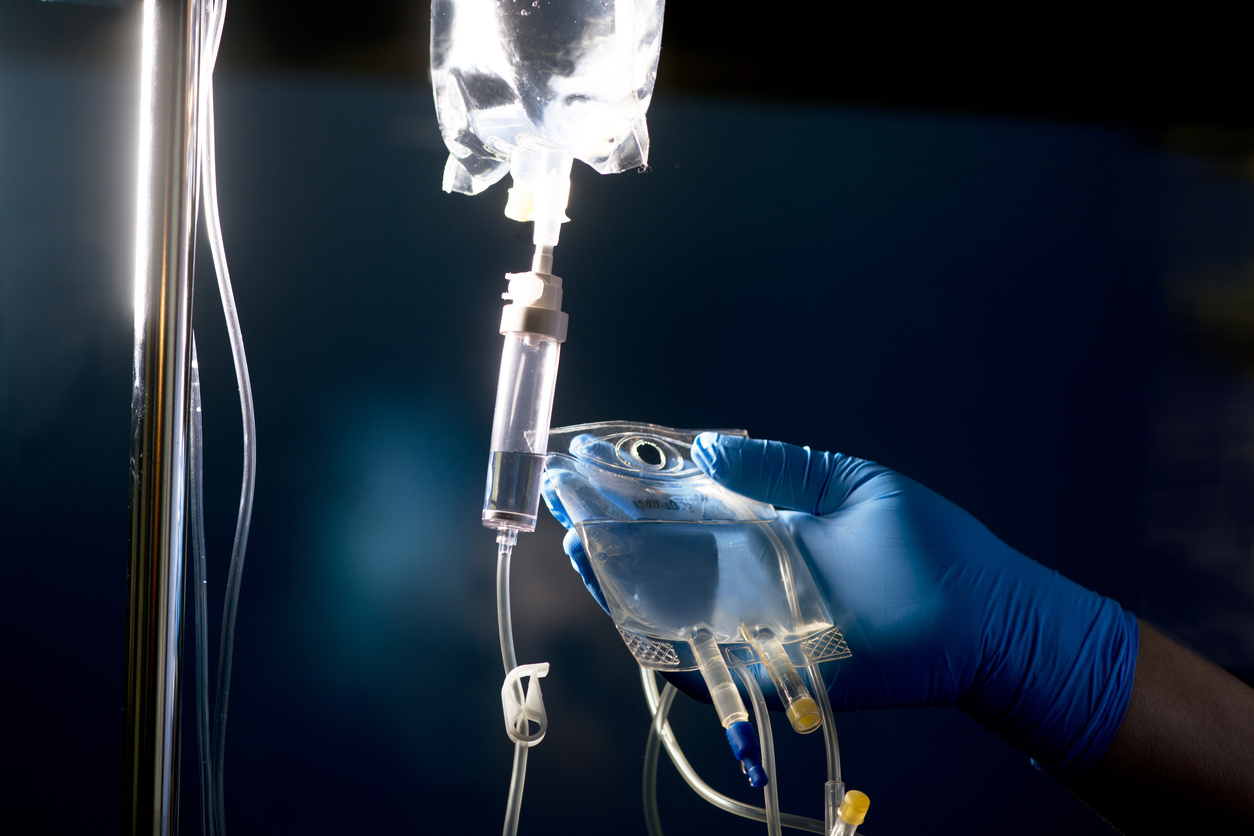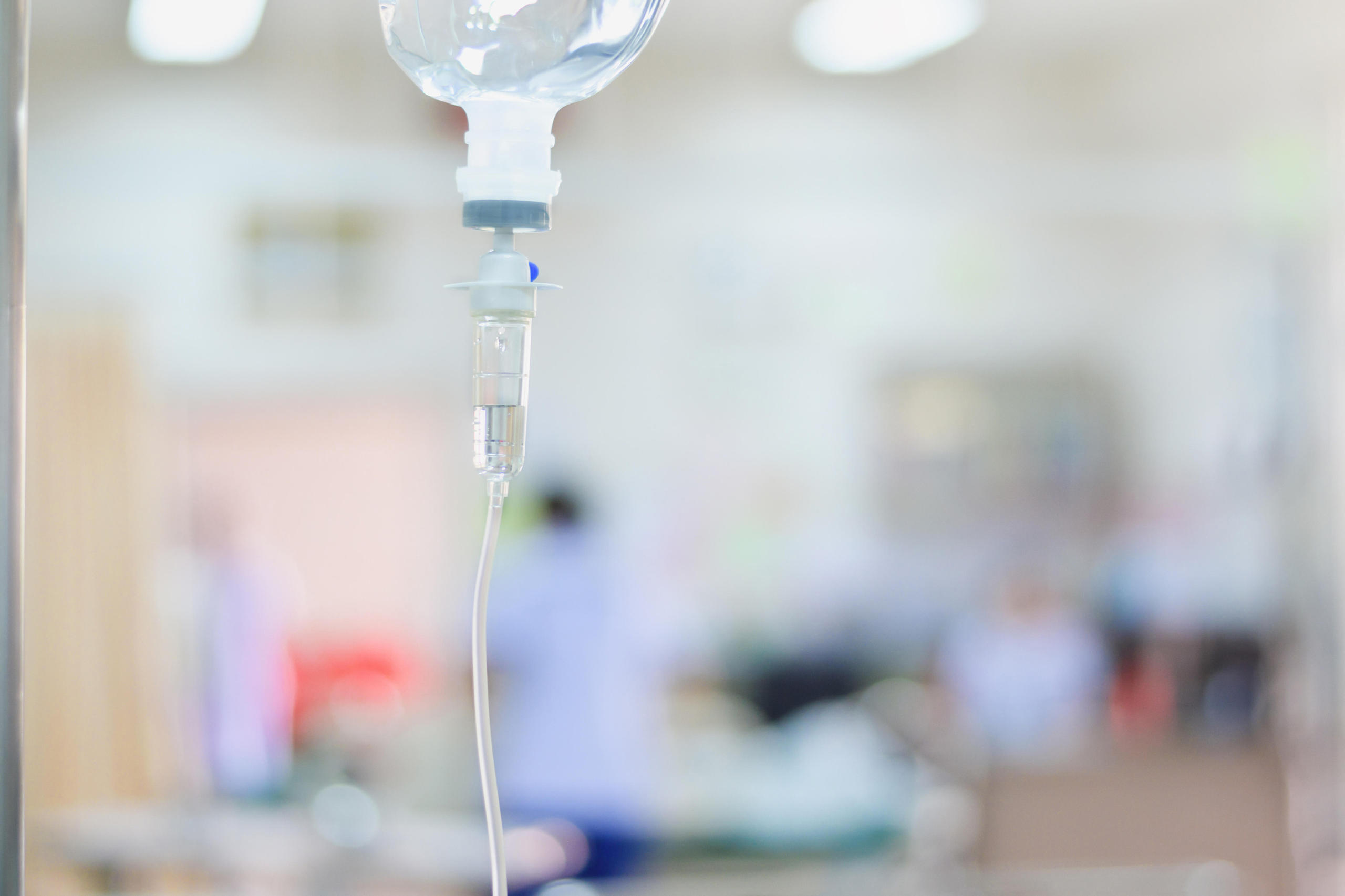
How a clash with Roche exposed cracks in Swiss drug pricing system

Switzerland’s new fast-track process to speed up patient access to the latest drugs has hit its first major hurdle, with a stand-off between the regulator and pharma giant Roche over the price of its cancer treatment Lunsumio. The dispute risks setting a dangerous precedent.
Pharma multinational Roche has sent shockwaves through Switzerland’s healthcare system, deploying a high-stakes strategy that’s testing the power of the country’s drug pricing regulator.
On July 1 the Basel-based company quietly pulled its new cancer drug mosunetuzumab, sold as Lunsumio, from its home market after talks broke down with the federal public health office (FOPH) over the price.
The failed negotiations meant the FOPH removed Lunsumio from the reimbursement list of its compulsory health insurance system, known as the Specialities List, denying patients access to the treatment. Roche could have done what it’s done before – allow it to be reimbursed in individual cases. Instead, it took the far more drastic step of a full market withdrawal.

More
The high stakes fight over drug prices
Roche said Lunsumio will still be available to current patients and in the future free of charge to patients who qualify for the Swiss Patient Access ProgrammeExternal link, backed by a non-profit medical association.
Doctors and patient groups were stunned by Roche’s decision, which hit headlines in Swiss mediaExternal link in mid-July, prompting the country’s main lymphoma patient network to publicly criticise the failure of the talks.
“Roche’s decision has serious short- and long-term implications for lymphoma patients,” Rosmarie Pfau, president of the network, lymphome.ch, told Swissinfo in an email. “This is another setback for drug development” and will certainly send “a clear signal to other pharmaceutical companies that want to introduce new cancer therapies in Switzerland”.
In Switzerland, the purchase of health insurance from private insurance companies is mandatory and they cannot refuse applicants. Government subsidies are provided for low-income households, ensuring everyone has insurance. The government regulates premiums and prices, but unlike many European countries, the Swiss system isn’t financed by taxes or social contributions.
Roche’s decision to withdraw raises the stakes in an intensifying battle between pharma companies and health authorities around the world over the value of new innovative drugs, especially those targeting a niche market. While pharma companies push for rapid launches and high prices, regulators aim to ensure that what they end up paying matches a new drug’s real therapeutic value as their budgets struggle to keep pace with soaring healthcare costs.
Lunsumio, which treats a rare, life-threatening blood cancer of the lymph system, was the pilot for a new process intended to accelerate access to innovative medicines. Some experts warn that Roche’s move risks undermining future negotiations and may encourage other drugmakers to follow suit, a tactic that could hold pricing authorities to ransom.
Early success
Lunsumio had been hailed as a success story. It was first given the green light in the US in 2022 and has so far been approvedExternal link by more than 60 countries based on a global phase II trial involving 90 patients. Some 80% of those treated responded to the therapy, and in 60% the disease was no longer detectable.
Switzerland’s medicines regulator, Swissmedic, granted Lunsumio temporary authorisation in February 2023 for patients who hadn’t responded to two previous therapies. Of the 500 or so people diagnosed with follicular lymphoma in the country annually, health authorities estimated just 28 people would be eligible for the drug.

More
Why Switzerland pays more for cancer care than Sweden
Lunsumio was also groundbreaking in that it was the first drug in a new “early access” procedure, which allows reimbursement by insurers immediately after Swissmedic’s authorisation. The procedure aimed to cut the often six-to-12-month delay between approval and insurance coverage, speeding up access to essential medicines for patients with rare diseases and few or no other treatment options.
Roche and the FOPH agreed on a provisional pricing model, whereby the company paid for initial doses until doctors confirmed the drug worked. Subsequent doses were covered by insurance. The price was set at CHF7,470 ($9,495) per 30ml dose and patients typically receive eight to 17 doses, according to an archived copy of the Specialities List, putting the total cost in a range of CHF60,000 to over CHF120,000.
This pricing deal was a way to remunerate “promising drugs with still uncertain data,” according to the regulator. Any changes to the deal were contingent upon full authorisation from Swissmedic, which required submission of the results of a Phase III trial.
But when the temporary authorisation expired in February 2025, the Phase III trial hadn’t finished and Roche was unable to provide the data required for full approval. The results are now expected in early 2026.
Nevertheless, according to the FOPH, Roche wanted to stop the advance payments and move to full reimbursement because of the positive outcomes reported by oncologists treating patients with the drug. The company didn’t comment on the price but told Swissinfo it offered the FOPH “substantial discounts”.
For Roche, the stakes are high. Lunsumio is expected achieve peak annual sales of $1-2 billion and and is currently being tested in combination with other drugs and in an easier to administer formulation. In 2024, two years after launching in the US, the medicine brought in $71 million, a 25% increase on 2023.
Many European countries offer Lunsumio through national health services, but both the UKExternal link and France’s health assessment bodies refused to recommend it, with both countries citing insufficient evidence of benefits over existing treatments. SwedenExternal link agreed to pay for it despite the lack of trial data, saying it was cost-effective at the confidential discounted price agreed with Roche.

More
The Swiss start-up upending how the world pays for medicine
Switzerland’s health authorities argued that making an exception for Roche would open the floodgates to demands by other drugmakers. Ending the pricing model “would have led to unequal treatment compared with other pharmaceutical companies with medicines that have been approved for a limited period,” an FOPH spokesperson told Swissinfo. The experiences of individual doctors can provide valuable information, but “they are no substitute for evidence-based clinical trials.”
The FOPH said it still hopes to reach a solution with Roche over reimbursement. Meanwhile Swissmedic extended Lunsumio’s temporary authorisation until 2027.
Calls for change
It’s unclear what led Roche to take the decision on this specific drug, especially given its limited market in its home country. Some experts suggest the company wanted to send a message to authorities in Switzerland that they can’t keep pushing prices down. Growing pressure from US President Donald Trump for European countries to raise drug prices may have also emboldened the company.

More
How pharma became Switzerland’s Achilles heel in US trade talks
“Two decades ago, Switzerland used to pay similar or even higher prices than other countries,” said Karin Steinbach, a drug pricing expert at the Geneva-based boutique consulting firm Lattice Point Consulting. “This made it one of the first places drugmakers would launch new treatments.”
Prices are set by the FOPH based primarily on two criteria – a comparison with existing therapies currently used to treat the disease in Switzerland (internal comparison) and with the average of prices charged in nine other European countries (external comparison). If a drug is particularly innovative, a 20% premium is added to the internal comparison.
But the tolerance for high prices has changed amid growing calls to rein in skyrocketing healthcare spending. Although medicine prices aren’t the only driver of rising costs, according to FOPH the costs of new medicineExternal link are on average, 50% higher than ten years ago. Studies also show that high prices don’t always correlate with greater effectiveness.
“We have to be more cautious when applying accelerated approval,” said Kerstin Noëlle Vokinger, a medicines and law expert at both the University of Zurich and the Federal Institute of Technology ETH Zurich, in an interview last year. “Companies are more profitable when they bring drugs on the market earlier, but the lack of evidence should also be reflected in the price.”
With just nine million people, Switzerland isn’t as attractive as the US and Germany, which puts health authorities in a difficult position when it comes to negotiating prices.
“The bigger markets are more attractive because there are more patients,” said Thomas Hofmarcher, a health economist at the Swedish Institute for Health Economics. “If you’re a small market you risk products being pulled because the company thinks it can afford to lose you. They may want to signal to the payer that they can’t just reduce our prices all the time.”
Interpharma, the Swiss pharma industry association, argues authorities need a more pragmatic and flexible approach to pricing that reflects the benefits of the treatment from the “perspective of clinical practice, healthcare and society,” wrote Georg Därendinger, head of communications.
The early access process, which became law in 2024External link, was an attempt to satisfy all sides, but the Lunsumio pilot was subject to the same tensions between drugmakers and health authorities that have traditionally plagued price negotiations.
“This situation is unfortunately symptomatic of fundamental problems with price setting in Switzerland, which we have been warning about for a long time,” a Roche spokesperson said. “We and all other healthcare companies will only be able to continue to provide new and innovative drugs to save and treat people in the future if our current drugs are reimbursed in proportion to the investments previously made.”
What is your opinion? Join the debate:
Edited by Nerys Avery/vm/ac
Correction: This story was updated to indicate that Lunsumio will still be available to current and future patients, and that it is not expected to be one of Roche’s top selling drugs.

More
Drug pricing: Swiss expert calls for more transparency

In compliance with the JTI standards
More: SWI swissinfo.ch certified by the Journalism Trust Initiative































You can find an overview of ongoing debates with our journalists here . Please join us!
If you want to start a conversation about a topic raised in this article or want to report factual errors, email us at english@swissinfo.ch.